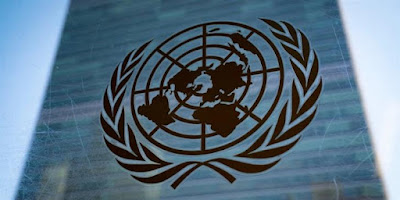Filenews 27 August 2022
At the UN, Russia yesterday, Friday, prevented the adoption of a text on nuclear disarmament.
In particular, Russia on Friday blocked the adoption of a joint declaration after four weeks of review at the UN of the Nuclear Non-Proliferation Treaty (NPT), denouncing its "political" terms.
The 191 countries that have signed the NPT, a 1970 treaty aimed at preventing the proliferation of nuclear weapons, promoting complete disarmament and cooperation for the peaceful exploitation of nuclear energy, met at the United Nations headquarters in New York since August 1.
Russia's objection
But even though negotiations had been going on for almost a month and although the final meeting was extended for several hours yesterday, Friday, "to my deep regret, this conference is not in a position to reach a consensus" and "reach an agreement", its president, Gustavo Slaubiven, said after Russia's intervention.
Igor Vishnevetski, the Russian representative, in fact denounced the lack of "balance" in the final draft text, with an area of more than 30 pages. "Our delegation raises an objection (...) in some paragraphs that are shamelessly political," he stressed, reiterating several times that Moscow was not the only country that generally had objections to the text.
According to sources aware of what was going on in the negotiations, Russia specifically opposed the paragraphs in the text concerning the nuclear power plant in Zaporizhia, Ukraine, which has been occupied by Russian troops since March.
The latest text on the table, obtained by the French Agency, expressed "great concern" about military activities around Ukrainian nuclear power plants, particularly in Zaporizhia, and the "loss of control" by the Ukrainian authorities, which has a "significant impact on security". A source close to the Russian delegation complained that it said some countries wanted to settle political accounts with Russia after the outbreak of the war in Ukraine.
There were other sensitive issues for some states in the debate over the last four weeks, concerning Iran's nuclear energy programme, or North Korea's nuclear weapons and ballistic missile tests. Nor at the previous conference on the review of the agreement, in 2015, did the parties manage to agree on fundamental issues.
In any case, "what is truly problematic, with this text or without any text, is that nothing is being done to reduce the level of the nuclear threat at the moment," Beatrice Finn, the head of the International Campaign for the Abolition of Nuclear Weapons (ICAN), told AFP yesterday. The draft text was "very weak" and "out of touch with reality," she said, stressing the absence of "tangible commitments to disarmament" in a specific timeline.
Guterres Warnings
Opening the conference, UN Secretary-General Antonio Guterres estimated that the "danger" due to nuclear weapons had not reached such a level "since the height of the cold war". "Today, humanity finds itself in a misunderstanding, a miscalculation from nuclear havoc," he warned.
Critics of the NPT point out that the five official nuclear powers (US, Russia, China, Britain and France) are subject to different conditions from countries that are parties but do not have nuclear arsenals. After all, India, Pakistan, Israel and North Korea also have nuclear weapons, without having signed the agreement, notes the Federation of American Scientists (FAS).
Globally, there are some 12,700 nuclear weapons in 2022, according to the Federation. At the height of the cold war in 1986, nuclear weapons were estimated to reach 70,300.
